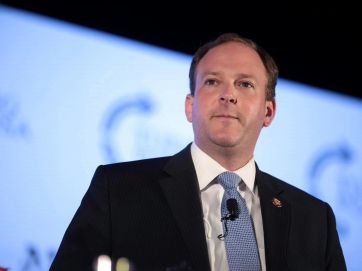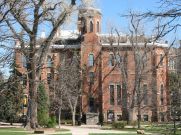At the White House on January 10, 2012, the U. S. Department of Education released its report Advancing Civic Learning and Engagement in Democracy: A Road Map and Call to Action. The report notes that the “Road Map is an integral part of the Department’s strategy for achieving the Obama administration’s goal that, by 2020, America will once again have the highest proportion of college graduates in the world.”
The release coincided with the publication of A Crucible Moment: College Learning and Democracy’s Future developed by a National Task Force on Civic Learning and Democratic Engagement, which included the American Association of Colleges & Universities. Conversation at the White House event was “structured around five priorities for action developed by the National Task Force and the American Commonwealth Partnership.” (Press Release and Report, January 10, 2012)
Alexandra Tilsley reported on that action in “National Conversation on Higher Ed’s Big Questions,” Inside Higher Education, September 5, 2012:
Two national groups aim to stimulate discussions on campuses across the country this year about what the top priorities of American higher education should be and what tradeoffs the country—and colleges—would have to make depending on the directions they go in. The campaign, “Shaping Our Future: How Should Higher Education Help Us Create the Society We Want?” is headed by the American Commonwealth Partnership, a consortium of colleges dedicated to democracy, and the National Issues Forums, a nonprofit organization that organizes and promotes public discussions. The goal is to bring together a variety of stakeholders, from university administrators to local residents in various communities, to discuss the purpose of higher education. About 60 forums are already scheduled for the fall, and organizers hope to hold at least 300 community discussions this year.
The National Issues Forums Institute (NIFI), a subsidiary of the Kettering Foundation, is carrying out what is called the Deliberative Dialogue Initiative on college campuses. In my last article, I outlined Kettering’s concept of deliberative democracy and illustrated how its forums can lead participants to conclusions that reflect activist agendas. In this article, I have chosen excerpts from the material prepared for the new forums to indicate how Kettering is “setting the table” for the forums and choices to follow.
The Issue Guide for “Shaping Our Future” asks: “What should we expect of higher education today when it comes to the nation? What could colleges and universities, including community colleges, trade and vocational schools…do to help us create the society we want? Three areas seem especially problematical:
The US economy is struggling. It’s not creating enough good jobs; middle-class incomes are lagging and we face tough economic competition throughout the world, especially in science and technology.
We’ve become a divided nation and a “me-first” society….People seem concerned only for themselves—not for the community or for the country as a whole….Too many of us are unwilling to compromise or work together to get problems solved.
Our country is becoming less fair….Too many people who work hard and play by the rules are slipping out of the middle class. And too many poor youngsters never get a fair chance in the first place.
The Issue Guide offers, and provides material to support, three options, worded as follows:
Option One: Focus on staying competitive in the global economy. Higher education should help ensure that our economy remains competitive in a tough global marketplace…[Others]…educate more high-tech professionals, and we should too.…But, without the right values to guide us, technology and economic growth can do as much harm as good….Emphasizing a culture of competition, which prizes excellence and high achievement, could lead us to neglect our obligation to those who aren’t as accomplished or competitive.
Option Two: Work together to repair an ailing society. Many of the problems we face as a nation reflect an underlying crisis of division and mistrust. Higher education shapes students’ views about the larger society, and it can do more to strengthen values like responsibility, integrity, and respect for others….But, this means colleges and universities, rather than families and communities, will be shaping students’ ethical, social, and political outlook…This takes time and resources away from higher education’s mission of developing intellectual and career skills.
Option Three: Ensure that everyone gets a fair chance. We call this the land of opportunity, but it isn’t that way for many Americans. Because graduating from college unlocks the door to advancement, higher education and government should do much more to ensure that all Americans have an equal shot at getting a degree—without accumulating large debts. But…higher education may end up lowering academic standards to help more students attend and graduate….
A few other points in the Issue Guide that address inequality should be noted. Under the heading, “What Could We Do,” the Guide says:
Regaining our leadership in science and technology won’t do much to help most Americans unless we have economic policies that support a robust middle class and offer wide opportunity. It could end up just enriching the people who are already doing well, and giving business and economic interests too much influence in higher education….Requiring more math and science will discourage some students, especially those whose interests lie elsewhere, making it harder for them to complete college...
Under the option “Ensure Everyone Gets a Fair Chance,” the Guide states:
According to the ACT College Readiness Standards, more than three-quarters of students entering higher education are not adequately prepared for college-level reading, English, math, or science so many students need extra help. Improving mentoring and remedial coursework not only helps these students graduate and better their own lives, but it’s good for the economy too….
Higher education must change so that all students have an equal chance both to attend college and to complete it. This means not only increasing access for all, but also providing the supports students need in order to graduate successfully….Instead of giving up on students at risk of not graduating, colleges and universities should require professors to invest more time in tutoring and mentoring and should offer more effective remedial courses.
The content of the Issue Guide indicates that the campus and community forums are aiming at potentially significant changes in the nature of higher education that would be of interest to NAS. And it is instructive to recall what Kettering has identified as the underlying basis for its public forums:
No government can define the public’s interest, decree the purposes that reflect those interests, or set the direction for the country. Only the public can do those things. And the public does that by making choices—issue by issue.
In my previous article Democracy, I showed how the academic democratic engagement envisioned by A Crucible Moment is implementing Herbert Croly’s ultimate progressive objective of “full realization of the democratic ideal.” Croly’s objectives were:
The American nation is no longer to be instructed as to its duty by the Law… It is to receive its instruction as the result of…collective action and…realize…by virtue of the active exercise of popular political authority its’ ideal of social justice…. The first thing which must be set aside is the method of representation…
Ironically, based on the information I set forth in my last article, the Kettering forums seem likely to enable not only the academic activism of A Crucible Moment, seeking social justice for students and society, but also the aim of collective decision making outside representative government to realize the progressive democratic ideal. This prospect warrants observation by NAS of the results the ongoing forums are producing.
Next week’s article will turn to the potential effects on small business, economic growth, and jobs of tax changes being considered to avoid going over the year-end fiscal cliff.
______________________________________________________________________________
This is one of a series of occasional articles applying the lessons of Western civilization to contemporary issues relevant to the academy.
The Honorable William H. Young was appointed by President George H. W. Bush to be Assistant Secretary for Nuclear Energy and served in that position from November 1989 to January 1993. He is the author of Ordering America: Fulfilling the Ideals of Western Civilization (2010) and Centering America: Resurrecting the Local Progressive Ideal (2002).













